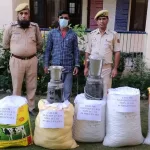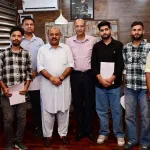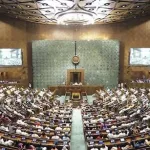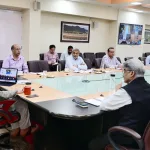Dr. IRFAN HAMEED
All forms of power involve the ability of powerholders to coerce others into giving up their property, their free choice of action, and even their lives. Political power, as opposed to economic power (based on money or other forms of wealth), religious power (based on relationships to transcendent forces), family power (based on sex, seniority, and kin relationships), and pure coercion (based on brute force), is rooted in the recognition of the rightful authority of the ruler. That authority stems from the demands within a society for specialists with the ability to mediate and coordinate.
Any group of human beings in regular interaction among themselves is prone to conflict over possessions, decisions regarding group actions (to hunt or not, to camp here or there, to fight or flee from a threat), and individual actions that give offense (insults, injury, infidelity). In small groups, such conflicts usually can be settled through the arbitration of respected family members or elders, but in larger groups or groups in which much interaction occurs among nonkin, those conflicts produce demands for justice that require a more broadly recognized form of mediation. Individuals who are particularly skilled at mediating such conflicts, who gain a reputation for wisdom and justice, can acquire the role of a specialist in settling conflicts. In addition, every group of human beings faces external threats from wild animals, the weather, and other human groups. Individuals who are particularly skilled at coordinating actions within a group for the purposes of attack, hunting, and defense can gain a reputation that translates into a calling as a specialist in coordinating group actions to meet threats.
The functions of mediation to produce internal justice and of coordination to deal with external threats are distinct. Modern societies have legal-judicial systems and executive- military systems that show a similar division of functions. However, these functions tended to merge because in both cases it was necessary to have mechanisms to compel compliance with the arbitration decisions of the mediator or the action directives of the coordinator. Once a society develops regular means to compel compliance with those decisions and directives (generally armed warriors closely attached to or under the direct supervision of the mediator or coordinator), that society is on its way to developing a state. Political power is thus the authority given to a recognized leader, whether judge or general, to compel compliance with his or her decisions.
Political power, however, is a two-edged sword. On the one hand, the power of the leader must be sufficient to ensure that arbitration is enforced and that the coordination of military, hunting, or building activities is effective. The larger a society is, the more complex its economy is, the stronger its enemies are, and the more threatening and varied its environment is, the greater are the tasks facing the state. Thus, for a society to avoid turmoil and defend itself, it must grow in organizational size, complexity, and power along with the society of which it is a part. On the other hand, as the leaders acquire control of larger and richer organizations and larger and more powerful coercive forces, there is a danger that that organizational and coercive force will be used to enrich and serve the desires of the ruler, not to meet the demands for justice and protection of the population.
The history of the state is thus a history of balancing acts and often of overreaching. State rulers frequently use their organization and authority to expand their power and wealth. Some rulers invest heavily in conquest, acquiring power over new regions and peoples by brute force and then setting up organizations and laws to acquire and enforce political authority. Other rulers have sought to distinguish themselves primarily as lawgivers orparagons of justice. Still others have simply taken their power as given and abused it. Sometimes they gain mightily from such abuse, but at other times, under very particular conditions they may become the object of elite revolts or popular revolutions.
The key to understanding the state is knowledge about the shifting relationships between state rulers, their organizations and resources, and their societies. Much of the history of the development of state forms comes from the competition between rulers seeking to extend their control of political organizations and coercive force and elite and popular groups seeking to limit or channel political authority into socially acceptable goals and actions.
(Author is a Senior Professor of Political Science working in Dubai. He writes for different national and international dailies)





